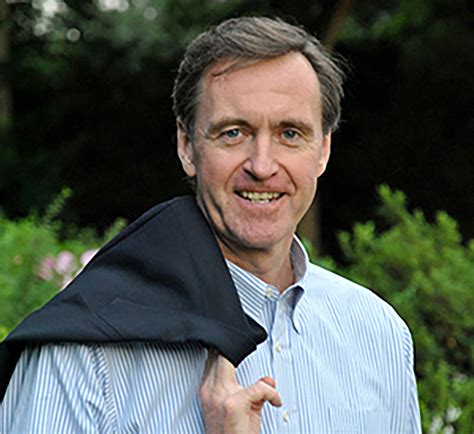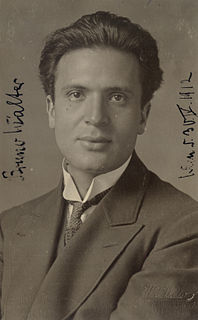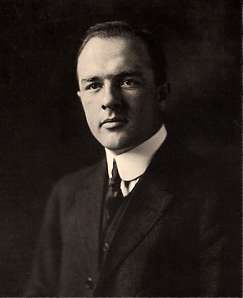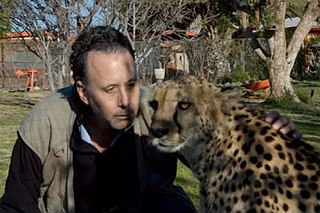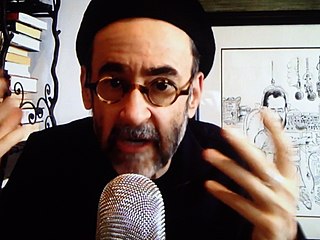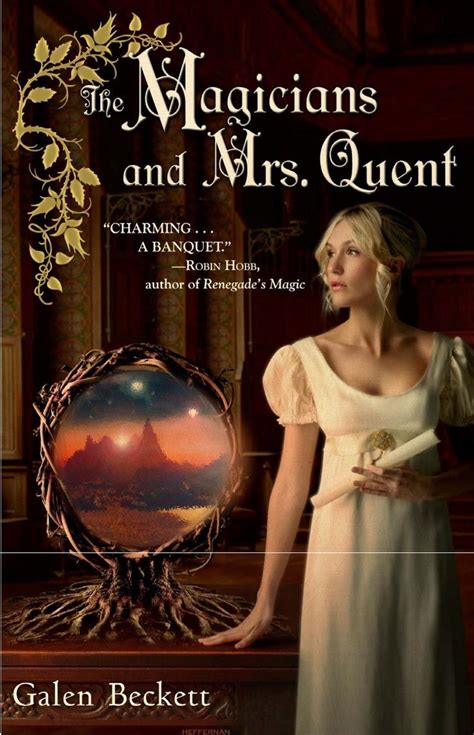Top 468 Impulses Quotes & Sayings - Page 8
Explore popular Impulses quotes.
Last updated on April 16, 2025.
The further limits of our being plunge, it seems to me, into an altogether other dimension of existence from the sensible and merely understandable world. Name it the mystical region, or the supernatural region, whichever you choose. So far as our ideal impulses originate in this region (and most of them do originate in it, for we find them possessing us in a way for which we cannot articulately account), we belong to it in a more intimate sense than that in which we belong to the visible world, for we belong in the most intimate sense wherever our ideals belong.
The psychical condition of men's minds may be compared with a set of bells close together, and so arranged that in the ordinary man a bell rings only when one beside it sounds, and the vibration lasts only a moment. In the genius, when a bell sounds it vibrates so strongly that it sets in action the whole series, and remains in action throughout life. The latter kind of movement often gives rise to extraordinary conditions and absurd impulses, that may last for weeks together and that form the basis of the supposed kinship of genius with insanity.
Some things are up to us [eph' hêmin] and some things are not up to us. Our opinions are up to us, and our impulses, desires, aversions–in short, whatever is our own doing. Our bodies are not up to us, nor are our possessions, our reputations, or our public offices, or, that is, whatever is not our own doing.
I think I am beginning to understand why grief feels like suspense. It comes from the frustration of so many impulses that had become habitual. Thought after thought feeling after feeling action after action had H. for their object. Now their target is gone. I keep on through habit fitting an harrow to the string then I remember and have to lay the bow down. So many roads lead through to H. I set out on one of them. But now there's an impassable frontier-post across it. So many roads once now so many culs de sac.
Now the basic impulse behind existentialism is optimistic, very much like the impulse behind all science. Existentialism is romanticism, and romanticism is the feeling that man is not the mere he has always taken himself for. Romanticism began as a tremendous surge of optimism about the stature of man. Its aim - like that of science - was to raise man above the muddled feelings and impulses of his everyday humanity, and to make him a god-like observer of human existence.
The church is like any large corporation in one respect. In its early days, either the early church or the early years of Microsoft, you see all kinds of creativity, innovation, invention, people have nothing to lose, they're trying to find what works. Then you wake up and you're a vast enterprise, and it's very hard, when you have all kinds of buildings and structures and hierarchy and so on, to hang on to these very creative impulses that helped you get your great success in the first place. As a church we're going to have to figure a way out from under this.
There is scarcely room for doubt that something in the psychological relation of a mother-in-law to a son-in-law breeds hostility between them and makes it hard for them to live together. But the fact that in civilized societies mothers-in-law are such a favourite subject for jokes seems to me to suggest that the emotional relation involved includes sharply contrasted components. I believe, that is, that this relation is in fact an 'ambivalent' one, composed of conflicting affectionate and hostile impulses.
All true obedience comes from the heart. It was heart work with Christ. And if we consent, He will so identify Himself with our thoughts and aims, so blend our hearts and minds into conformity to His will, that when obeying Him we shall be but carrying out our own impulses. The will, refined and sanctified, will find its highest delight in doing His service. When we know God as it is our privilege to know Him, our life will be a life of continual obedience. Through an appreciation of the character of Christ, through communion with God, sin will become hateful to us.
Human beings have got a lot of good, noble impulses inside them, and most people want to be good and do more good than they do evil. Hell, we've had nuclear weapons now for thirty or thirty-five years and nothing's happened yet. That in itself seems to be a miracle. If Reagan pushes the button or somebody pushes the button in Russia or somebody pushes it in Costa Rica, they can put a big tombstone in outer space that says, "We gave it a good try." Because we have.
A good social system is not to be secured by making people unselfish, but, by making their own vital impulses fit in with other peoples. This is feasible. Those who have produced stoic philosophies have all had enough to eat and drink. I feel I shall find the truth on my deathbed and be surrounded by people too stupid to understand—fussing about medicines instead of searching for wisdom. I hate being all tidy like a book in a library where nobody reads – prison is horribly like that.
Simplicity is a pleasant thing in children, or at any age, but it is not necessarily admirable, nor is affectation altogether a thing of evil. To be normal, to be at home in the world, with a prospect of power, usefulness, or success, the person must have that imaginative insight into other minds that underlies tact and savoir-faire, morality and beneficence. This insight involves sophistication, some understanding and sharing of the clandestine impulses of human nature. A simplicity that is merely the lack of this insight indicates a sort of defect.
As for comics, one has only to turn to the characteristic output of Marvel Comics, for the period from about 1961 to about 1975, to find not an expression of base and cynical impulses but of good, old-fashioned liberal humanism of a kind that may strike us today, God help us, as quaint, but which nevertheless appealed, in story after story, to ideals such as tolerance, technological optimism, and self-sacrifice for the benefit of others.
Deep thinkers who look everywhere for the mysterious causes of poverty, ignorance, crime and war need look no further than their own mirrors. We are all born into this world poor and ignorant, and with thoroughly selfish and barbaric impulses. Those of us who turn out any other way do so largely through the efforts of others, who civilized us before we got big enough to do too much damage to the world or ourselves.
I know no study which is so unutterably saddening as that of the evolution of humanity, as it is set forth in the annals of history. Out of the darkness of prehistoric ages man emerges with the marks of his lowly origin strong upon him. He is a brute, only more intelligent than the other brutes, a blind prey to impulses, which as often as not led him to destruction; a victim to endless illusions, which make his mental existence a terror and a burden, and fill his physical life with barren toil and battle.
What moralists describe as the mysteries of the human heart are solely the deceiving thoughts, the spontaneous impulses of self-regard. The sudden changes in character, about which so much has been said, are instinctive calculations for the furtherance of our own pleasures. Seeing himself now in his fine clothes, his new gloves and shoes, Eugène de Rastignac forgot his noble resolve. Youth, when it swerves toward wrong, dares not look in the mirror of conscience; maturity has already seen itself there. That is the whole difference between the two phases of life.
What the expression is intended to mean, I think, is that there is a better and a worse element in the character of each individual, and that when the naturally better element controls the worse then the man is said to be "master of himself", as a term of praise. But when - as a result of bad upbringing or bad company one s better element is overpowered by the numerical superiority of one s worse impulses, then one is criticized for not being master of oneself and for lack of self control.
Sexual integrity means honestly recognizing our own impulses and desires and honoring them, whether or not we choose to act on them. If we value integrity, we must also value diversity in sexual expression and orientation, recognizing that there is no one truth, or one way, that fits everyone.Sexuality is sacred because through it we make a connection with another self - but it is misused and perverted when it becomes an arena of power-over, a means of treating another - or oneself - as an object.
I have increasingly become conversant with Pythagoras' and Goethe's idea of a primordial music, not perceptible to the sensuous ear, but sounding and soaring throughout the cosmos. Tracing it to such exalted origins, I begin to understand more deeply the essence of our art and its elemental power over the human soul. Man, being a creature of Nature and subject to the cosmic influences that inform all earthly beings, must needs have been under the sway of that music from his earliest days; his organism reverberated with its vibrations and received it's rhythmic impulses.
One day while studying a Yeats poem I decided to write poetry the rest of my life. I recognized that a single short poem has room for history, music, psychology, religious thought, mood, occult speculation, character, and events of one's own life. I still feel surprised that such various substances can find shelter and nourishment in a poem. A poem in fact may be a sort of nourishing liquid, such as one uses to keep an amoeba alive. If prepared right, a poem can keep an image or a thought or insights on history or the psyche alive for years, as well as our desires and airy impulses.
Through compassion it is possible to recognize that the craving for love that people feel resides also in our own hearts, that the cruelty the world knows all too well is also rooted in our own impulses. Through compassion we also sense our hope for forgiveness in our friends' eyes and our hatred in their bitter mouths. When they kill, we know that we could have done it; when they give life, we know that we can do the same. For a compassionate person nothing human is alien: no joy and no sorrow, no way of living and no way of dying.
There are moments, psychologists tell us, when the passion for sin, or what the world calls sin, so dominates a nature, that every fibre of the body, as every cell of the brain, seems to be instinct with fearful impulses. Men and women at such moments lose the freedom of their will. They move to their terrible end as automatons move. Choice is taken from them, and conscience is either killed, or, if it lives at all, lives but to give rebellion its fascination, and disobedience its charm.
Men in general are too material and do not make enough human contacts. If we search for the fundamentals which actually motivate us we will find that they come under four headings: love, money, adventure and religion. It is to some of them that we always owe that big urge which pushes us onward. Men who crush these impulses and settle down to everyday routine are bound to sink into mediocrity. No man is a complete unit of himself; he needs the contact, the stimulus and the driving power which is generated by his contact with other men, their ideas, and constantly changing scenes.
We like to pretend that our generous impulses come naturally. But the reality is we often become our kindest, most ethical selves only by seeing what it feels like to be a selfish jackass first. It's the reason... we have to get burned before we understand the power of fire; the reason our most meaningful relationships are so often those that continued beyond the very juncture at which they came the closest to ending.
The weak are not a noble breed. Their sublime deeds of faith, daring, and self-sacrifice usually spring from questionable motives. The weak hate not wickedness but weakness; and one instance of their hatred of weakness is hatred of self. All the passionate pursuits of the weak are in some degree a striving to escape, blur, or disguise an unwanted self. It is a striving shot through with malice, envy, self-deception, and a host of petty impulses; yet it often culminates in superb achievements.
It's very common to think that we're always evolving, that we've changed so much from our younger selves, that within decades we've transformed into these different people. We like to think that. I feel in some ways that I am still so much my younger self. There are ways that I'm different: I feel like I'm wiser and kinder. But I think a lot of the impulses are still the same. I learned that.
Let us simmer over our incalculable cauldron, our enthralling confusion, our hotchpotch of impulses, our perpetual miracle - for the soul throws up wonders every second. Movement and change are the essence of our being; rigidity is death; conformity is death; let us say what comes into our heads, repeat ourselves, contradict ourselves, fling out the wildest nonsense, and follow the most fantastic fancies without caring what the world does or thinks or says. For nothing matters except life.
The everyday brain could be dubbed "the baseline brain," because it operates at the minimum functioning to keep you alive and healthy. It controls your heart rate, your blood pressure, your immune function, all of your subconscious impulses. That's not a minor role; the baseline brain is a marvel of complexity and efficiency. But too much of it is devoted to habits, old conditioning, unconscious reflexes, and lack of self-awareness.
Just what is it that America stands for? If she stands for one thing more than another, it is for the sovereignty of self-governing people, and her example, her assistance, her encouragement, has thrilled two continents in this western world with all those fine impulses which have built up human liberty on sides of the water. She stands, therefore, as an example of independence, as an example of free institutions, and as an example of disinterested international action in the main tenets of justice.
First you look for discipline and control. You want to exercise your will, bend the language your way, bend the world your way. You want to control the flow of impulses, images, words, faces, ideas. But there's a higher place, a secret aspiration. You want to let go. You want to lose yourself in language, become a carrier or messenger.
The Holocaust most assuredly challenges any and all faith in God. Faith in humanity. Faith in nature. Faith in the future. I don't "tell" young people anything. I ask them to consider many things, particularly, their assumptions regarding their natural obligations to be loving towards all living beings. Many of my works - both literary and film - are fictional, like Codex Orféo. And that's because the genre has always allowed me to suggest things that are opinions, spiritual impulses and intuitions, not necessarily provable.
But soon we shall die and all memory of those five will have left the earth, and we ourselves shall be loved for a while and forgotten. But the love will have been enough; all those impulses of love return to the love that made them. Even memory is not necessary for love. There is a land of the living and a land of the dead and the bridge is love, the only survival, the only meaning.
All living beings have received their weapons through the same process of evolution that moulded their impulses and inhibitions; for the structural plan of the body and the system of behaviour of a species are parts of the same whole.... Wordsworth is right: there is only one being in possession of weapons which do not grow on his body and of whose working plan, therefore, the instincts of his species know nothing and in the usage of which he has no correspondingly adequate inhibition.
The anterior cingulate fires up as the end result of a series of events. First, estrogen levels fall. Meanwhile, serotonin, the feel-good neurotransmitter, also decreases. The deficiency in serotonin causes the anterior cingulate gyrus to fire up. To make things worse, just about this time the PFC tends to quiet down, which is why women may have a hard time focusing and controlling impulses. So we see emotional difficulties, intensified feelings of sadness, and disturbed sleep.
Theocracy is the worst of all governments. If we must have a tyrant, a robber baron is far better than an inquisitor. The baron's cruelty may sometimes sleep, his cupidity at some point be sated; and since he dimly knows he is doing wrong he may possibly repent. But the inquisitor who mistakes his own cruelty and lust of power and fear for the voice of Heaven will torment us infinitely because he torments us with the approval of his own conscience and his better impulses appear to him as temptations.
Man... is an inextricable tangle of culture and biology. And not being simple, he is not simply good; he has... a kind of hell within him from which rise everlastingly the impulses which threaten his civilization. He has the faculty of imagining for himself more in the way of pleasure and satisfaction than he can possibly achieve. Everything that he gains he pays for in more than equal coin; compromise and the compounding with defeat constitute his best way of getting through the world. His best qualities are the result of a struggle whose outcome is tragic. Yet he is a creature of love.
It win be a device that will permit communication without any time interval between two points in space. The device will not transmit messages, of course; simultaneity is identity. But to our perceptions, that simultaneity will function as a transmission, a sending. So we will be able to use it to talk between worlds, without the long waiting for the message to go and the reply to return that electromagnetic impulses require. It is really a very simple matter. Like a kind of telephone.
There is a powerful craving in most of us to see ourselves as instruments in the hands of others and thus free ourselves from the responsibility for acts which are prompted by our own questionable inclinations and impulses. Both the strong and the weak grasp at this alibi. The latter hide their malevolence under the virtue of obedience: they acted dishonorably because they had to obey orders. The strong, too, claim absolution by proclaiming themselves the chosen instrument of a higher power -- God, history, fate, nation, or humanity.
The point of recapitulation in the first movement of Beethoven's Ninth Symphony unleashes one of the most horrifyingly violent episodes in the history of music....The point is not to hold up Beethoven as exceptionally monstrous. The Ninth Symphony is probably our most compelling articulation in music of the contradictory impulses that have organized patriarchal culture since the Enlightenment. Moreover, within the parameters of his own musical compositions, he may be heard as enacting a critique of narrative obligations that is...devestating.
We have allowed brain thinking to develop and dominate our lives.
As a consequence, we are at war within ourselves.
The brain desiring things which the body does not want, and the body desiring things which the brain does not allow; the brain giving directions which the body will not follow, and the body giving impulses which the brain cannot
Tragedy massages the human ego even as comedy deflates it. ... Tragedy pits us against large foes and the trip wire is our own character. ... In comedy we fall afoul of one another. Comedy depends on social life, on our behavior in groups. In tragedy you can observe one human against the gods. In comedy it's one human versus other humans and often one man (or woman if I'm writing it) against her own worst impulses.
A man who lies to himself, and believes his own lies becomes unable to recognize truth, either in himself or in anyone else, and he ends up losing respect for himself and for others. When he has no respect for anyone, he can no longer love, and, in order to divert himself, having no love in him, he yields to his impulses, indulges in the lowest forms of pleasure, and behaves in the end like an animal. And it all comes from lying - lying to others and to yourself.
I will not deny that my heart has long occupied itself with the most tender feelings for another. So strong were these impulses that I indulged myself by thinking that if I could not have him whom I admired whom I will admit it now when I would not before I loved then I would never want another. However those are sentiments best saved for one of Lily's romances. The heart is a far more practical thing and in its life is happily capable of more than a single attachment.
I have repeatedly stressed that the selfish impulses of man constitute a much less historic danger than his integrative tendencies. To put it in the simplest way: the individual who indulges in an excess of aggressive self-assertiveness incurs the penalties of society-he outlaws himself, he contracts out of the hierarchy. The true believer, on the other hand, becomes more closely knit into it; he enters the womb of his church, or party, or whatever the social holon to which he surrenders his identity.
In summer we live out of doors, and have only impulses and feelings, which are all for action, and must wait commonly for the stillness and longer nights of autumn and winter before any thought will subside; we are sensible that behind the rustling leaves, and the stacks of grain, and the bare clusters of the grape, there is the field of a wholly new life, which no man has lived; that even this earth was made for more mysterious and nobler inhabitants than men and women. In the hues of October sunsets, we see the portals to other mansions than those which we occupy.
I steal into their dreams," he said. "I steal into their most shameful thoughts, I'm in every shiver, every spasm of their souls, I steal into their hearts, I scrutinize their most fundamental beliefs, I scan their irrational impulses, their unspeakable emotions, I sleep in their lungs during the summer and their muscles during the winter, and all of this I do without the least effort, without intending to, without asking or seeking it out, without constraints, driven only by love and devotion.
Yet I am not more sure that my soul lives, than I am that perverseness is one of the primitive impulses of the human heart - one of the indivisible primary faculties, or sentiments, which give direction to the character of Man. Who has not, a hundred times, found himself committing a vile or a silly action, for no other reason than because he knows he should not? Have we not a perpetual inclination, in the teeth of our best judgment, to violate that which is Law, merely because we understand it to be such?





